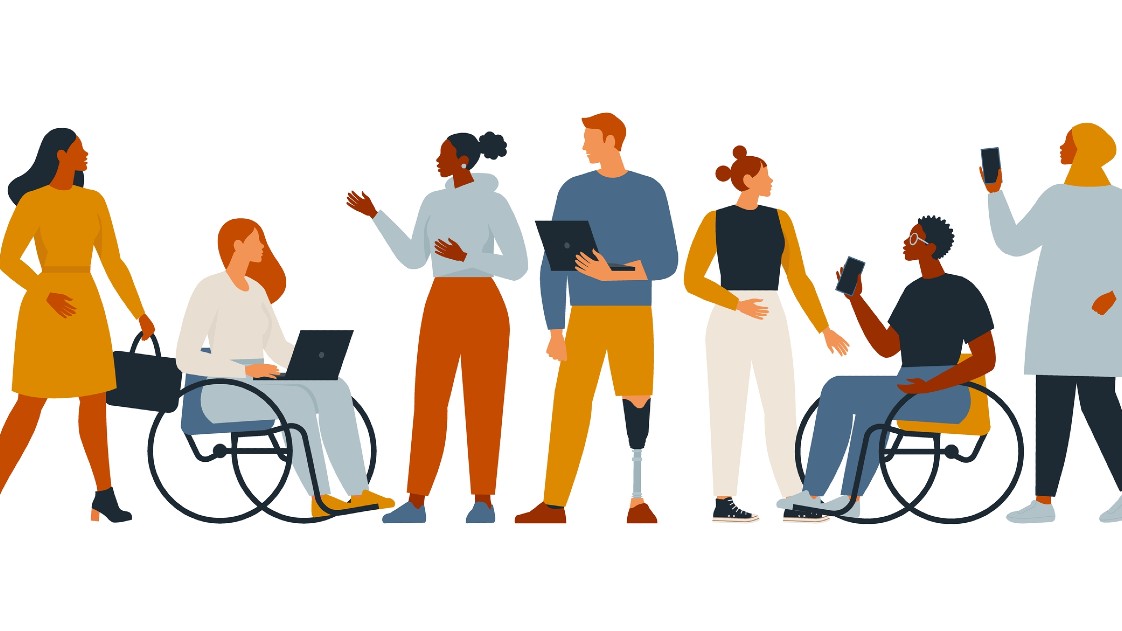Inclusion in youth projects

The EYF recognizes inclusion as one of the key aspects of quality youth projects. Inclusion requires continuous reflection and effort to better understand the needs of diverse people and groups, and a critical reflection on existing practices both at the individual and organisational level. On this page, a variety of resources are gathered, with the aim to support youth organisations to better incorporate inclusive practices into their work and EYF supported projects.
Recognizing diversity as a value and striving to ensure accessibility are at the core of inclusion and access to human rights. Strengthening inclusive practices in the context of youth work requires a consideration of complex dynamics that exist in our societies, and a reflection on differences in privileges, that result in the social exclusion of certain groups. Identifying what might constitute barriers to participation for young people facing disadvantages - such as economic, social or political obstacles- and actively trying to remove these barriers require conscious reflection and commitment. The EYF encourages an intersectional approach to inclusion. Intersectionality recognizes that our identities are multidimensional, and no social group or social category is homogenous. It provides a framework to understand how opportunities, barriers and discrimination that a person might face are a result of multiple, interlinked aspects of their identities and social background, such as gender, sexual orientation, ethnicity or socio-economic status.
EYF INCLUSION TOOLBOX - A GUIDE ON INCLUSIVE PRACTICES

It focuses on 6 areas of project management: finance, participants, logistics, online activities, team and atmosphere, programme and content.
Under each area, the resource presents “top-tips”, a list of potential barriers to inclusion, inclusive approaches and actions, and an “inclusion check-list”. In addition, the Toolbox includes ideas about establishing a safer space, directions of monitoring and evaluation and additional relevant resources produced by the Council of Europe. This resource is to provide youth organisations with practical ideas and encourage them to examine their practices through the lens of inclusion and diversity. The suggestions included in the Toolbox aim to plant a seed, to inspire and encourage youth organisations, and need to be adapted to their specific context and reality.
Download the toolbox here
Background information
Under the standards of the Council of Europe, discrimination is considered a violation of human rights. To safeguard democratic values and human rights, the Council of Europe carries out a wide range of programmes that address discrimination and inequality and strengthen inclusion. Strengthening social inclusion is a guiding principle of the Council of Europe’s youth sector’s work. Living together in peaceful and inclusive societies is one of the current thematic priorities. The Youth Department has organised several training, capacity-building and awareness-raising activities on social inclusion which contributed to a series of recommendations by the Committee of Ministers, such as Recommendation CM/Rec(2015)3 on the access of young people from disadvantaged neighbourhoods to social rights, Recommendation CM/Rec(2016)7 on young people’s access to rights and Recommendation CM/Rec(2017)4 on youth work. The Education and Training Division has been supporting study sessions organised by youth organisations representing youth groups experiencing exclusion and discrimination (such as Roma, LGBTIQ young people, young people experiencing homelessness, young refugees, young people with disabilities and others) for many years in the European youth centres in Strasbourg and Budapest. The EYF provides financial support to several youth projects that aim to combat discrimination and promote inclusion through youth work and supports activities that bring together young people with diverse backgrounds to create inclusive learning opportunities.
Useful resources - Council of Europe
Manual Promoting Accessibility of the Training and Education Programme at the European Youth Centres
Mirrors – Manual on Combatting antigypsyism through human rights education
Barabaripen – Young Roma speak about multiple discrimination
Useful NGO resources
IFM - SEI: diversity and inclusion checklist
IGLYO Intersectionality toolkit
OBESSU Inclusionary
Other resources
“Inclusion A to Z”: a compass to inclusive international youth work


